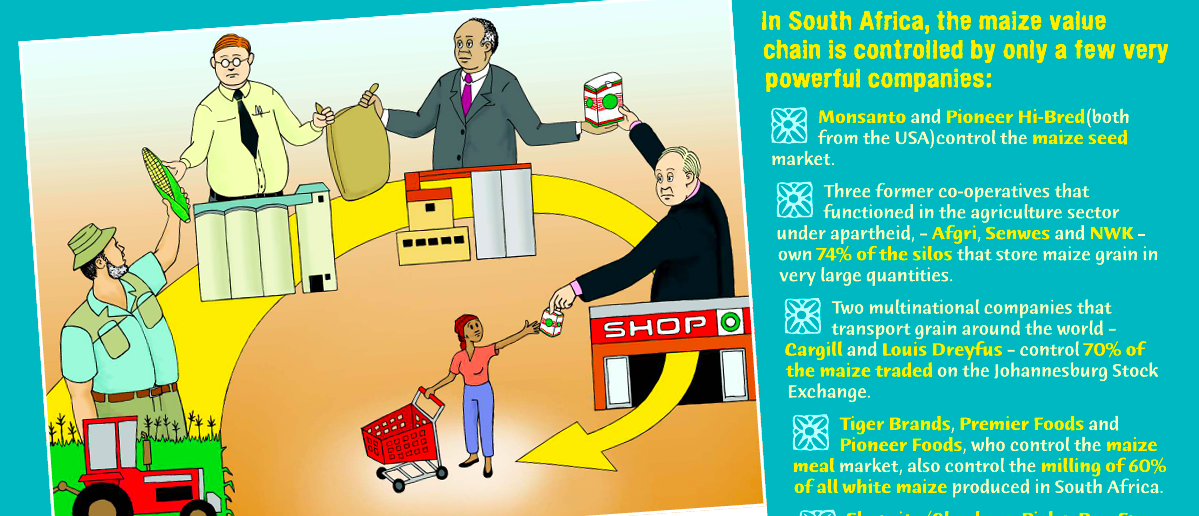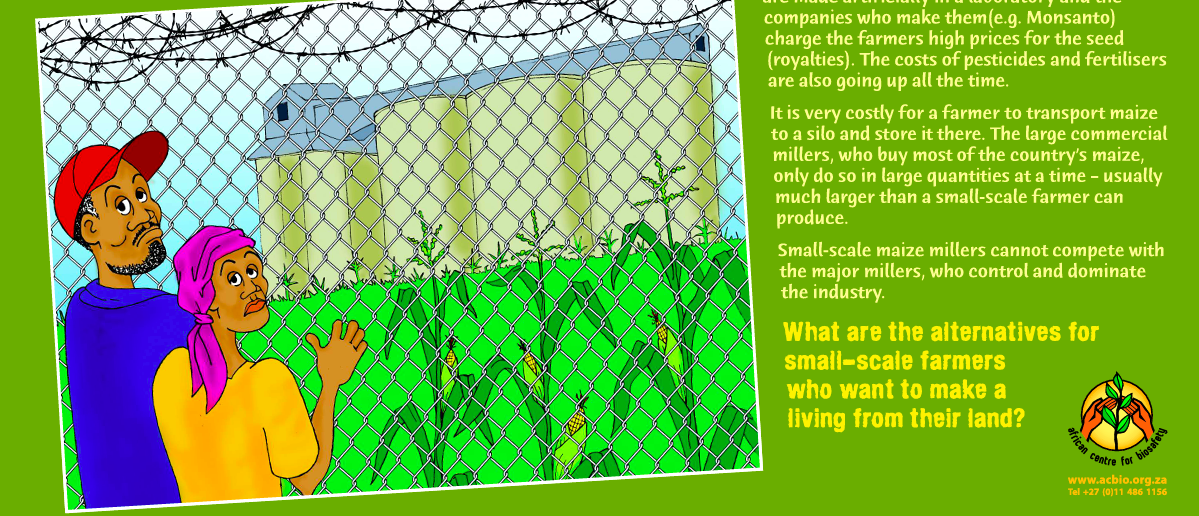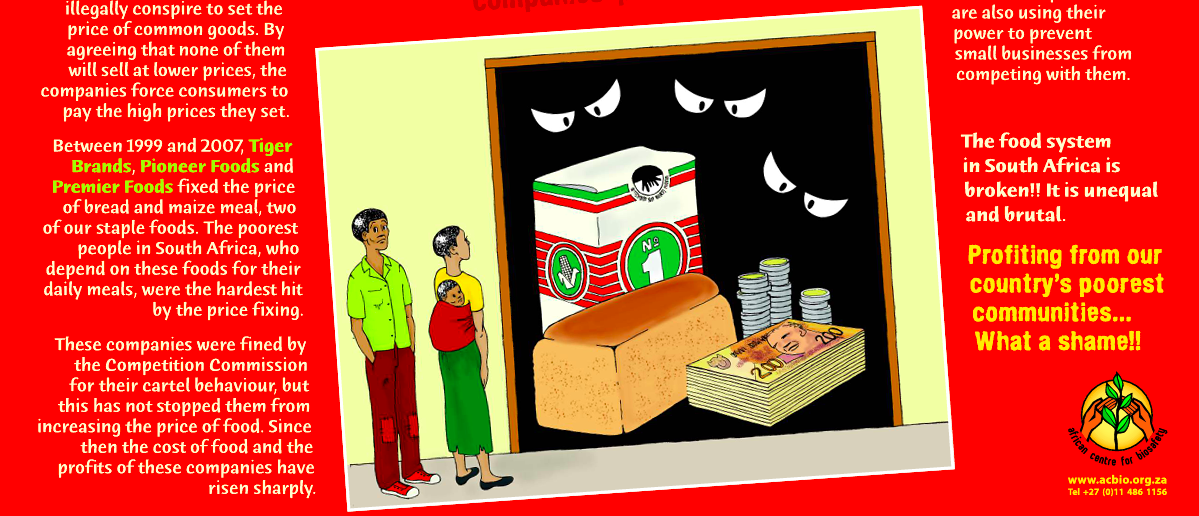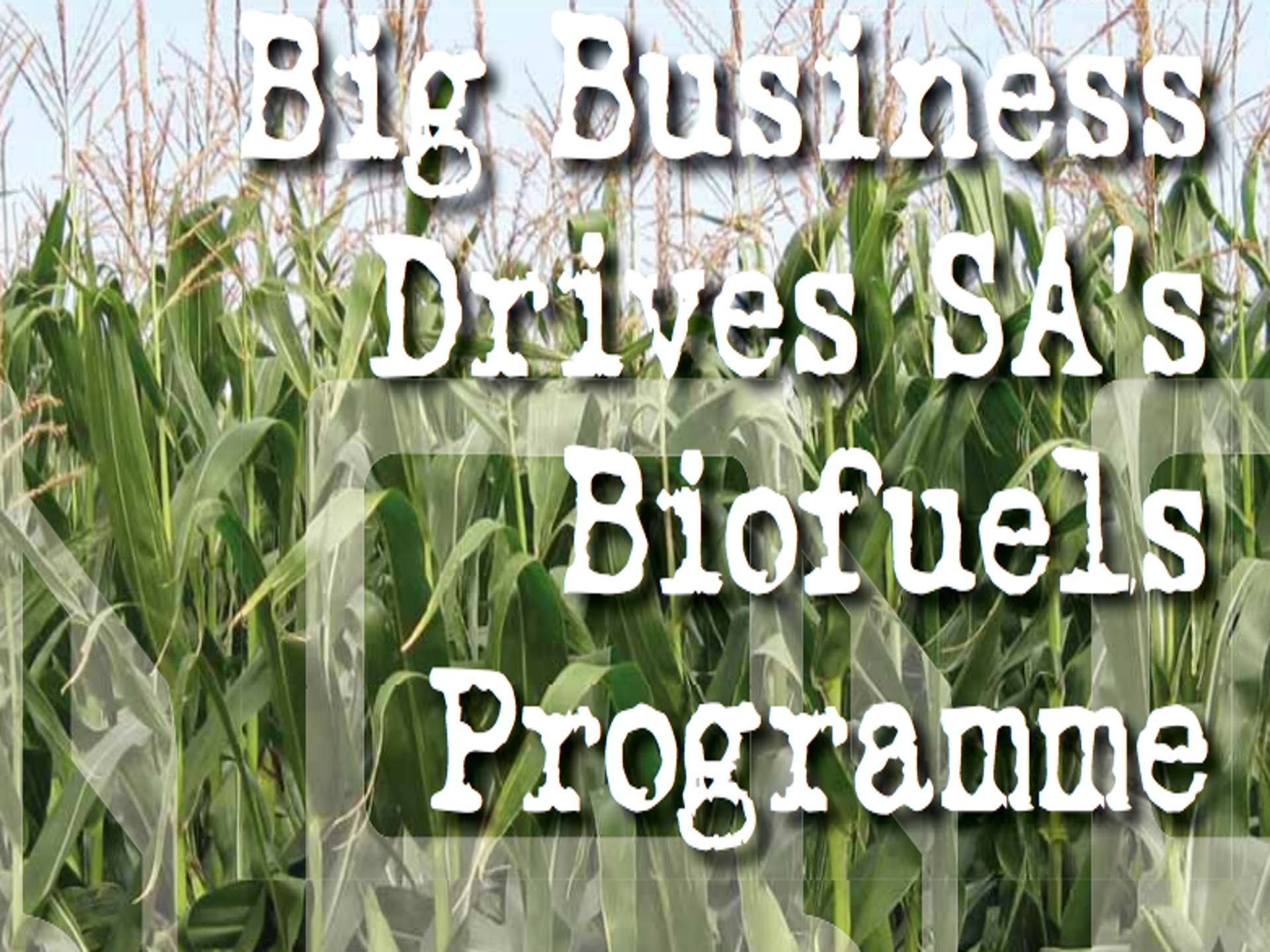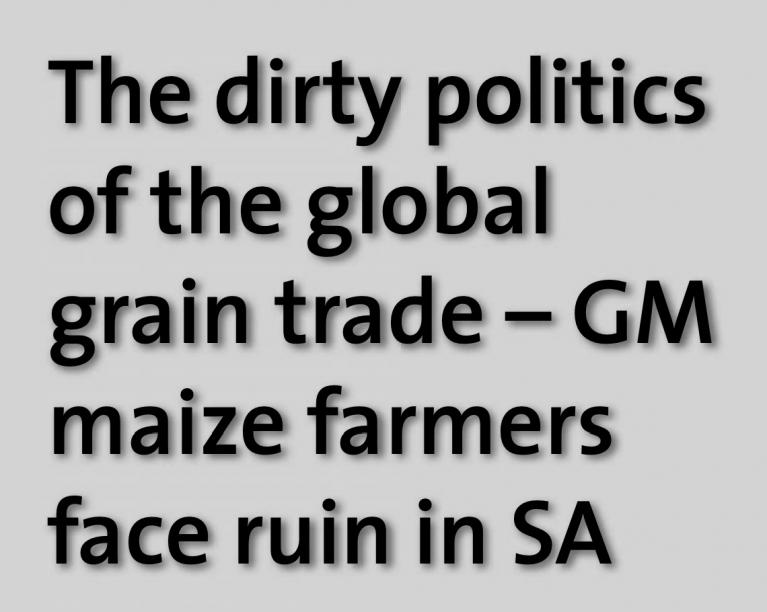Latest Agribusiness Resources
14 March 2017
ACB Submission to Competition Commission on Bayer Monsanto merger
This submission is made by the ABC because of serious public interest concerns about the proposed merger between Bayer and Monsanto. This merger is occurring in the context of other related mergers in agricultural input supply, between ChemChina-Syngenta and Dow-Du Pont. We urge the Commission to consider the wider implications of these mergers beyond a […]
READ13 February 2017
Bayer-Monsanto merger: An existential threat to South Africa’s food system
In December 2016 Monsanto shareholders voted in favour of the sale of the company to Bayer for US$66 billion, making it the largest-ever foreign corporate takeover by a German company. Both Bayer and Monsanto are major global manufacturers of agrochemicals and seeds, including genetically modified seed. A merged entity would be the world’s largest supplier […]
READ3 December 2014
Who owns our food systems: Who owns our maize?
It is shocking that in South Africa a handful of very powerful cooperations control how and what we eat! Download this factsheet: English | Afrikaans | Sotho | Zulu To read the rest of the fact sheets in this series, click here.
READ3 December 2014
Who owns our food systems: Small-scale farmers and the maize value chain
Small-scale maize millers cannot compete with the major millers who control and dominate the industry. What are the alternatives for small-scale farmers who want to make a living from their land? Download this factsheet: English | Afrikaans | Sotho | Zulu To read the rest of the fact sheets in this series, click here.
READ3 December 2014
Who owns our food systems: Fixing the price of food
Between 1999 and 2007, Tiger Brands, Pioneer Foods and Premier Foods fixed the price of bread and maize meal, two of our staple foods. The poorest people in South Africa, who depend on these foods for their daily meals, were the hardest hit by the price fixing. Download this factsheet: English | Afrikaans | Sotho […]
READ2 September 2014
Africa an El Dorado for South Africa’s Agribusiness Giants
South African agribusinesses are aggressively expanding into Africa in search of profits from a relatively untapped consumer market with rising income levels and to escape the country’s negative economic conditions. This paper traces this expansion and outlines the implications for Africa’s market structure, food security and food sovereignty movements, as well as exploring the potential […]
READ15 May 2012
Big Business Drives SA’s Biofuels Programme
In late February 2012 leading figures from the fossil fuel industry met in Pretoria to forge ahead with the government’s highly controversial plans for an SA biofuels industry. The catalyst for this meeting was the publication by the government last September of draft regulations for the mandatory blending of biofuels in the nation’s fuel supply. […]
READ10 November 2010
Opposition to Pioneer Hi Bred’s merger with Pannar, submitted to Competitions Commission
As a stakeholder, the ACB was requested by the Competition Commission to make written comments on the proposed merger between Pioneer Hi Bred and Pannar, which we submitted to the Commission on the 21st of October, 2010. In this submission, we raise the following further pertinent issues: We provide in several annexes, the seeds under […]
READ8 September 2010
The dirty politics of the global grain trade – GM maize farmers face ruin in SA
Recently, the South African press reported on the possible bankruptcy faced by maize farmers. The African Centre for Biosafety (ACB) has today released a new report titled “The dirty politics of the global grain trade – GM maize farmers face ruin in SA” which provides an analysis of why South Africa’s record 13 million ton […]
READ13 February 2008
South Africa’s Biofuels Strategy: greenwashing agribusiness interests
The impetus for the establishment of a biofuels industry in South Africa also came from industry lobbyists under the banner of the Southern African Biofuels Association (SABA). Consequently, the South African government published a feasibility report and a draft Biofuels Industrial Strategy in 2006, which proposed the establishment of a mandatory bioethanol target of 8% […]
READ


